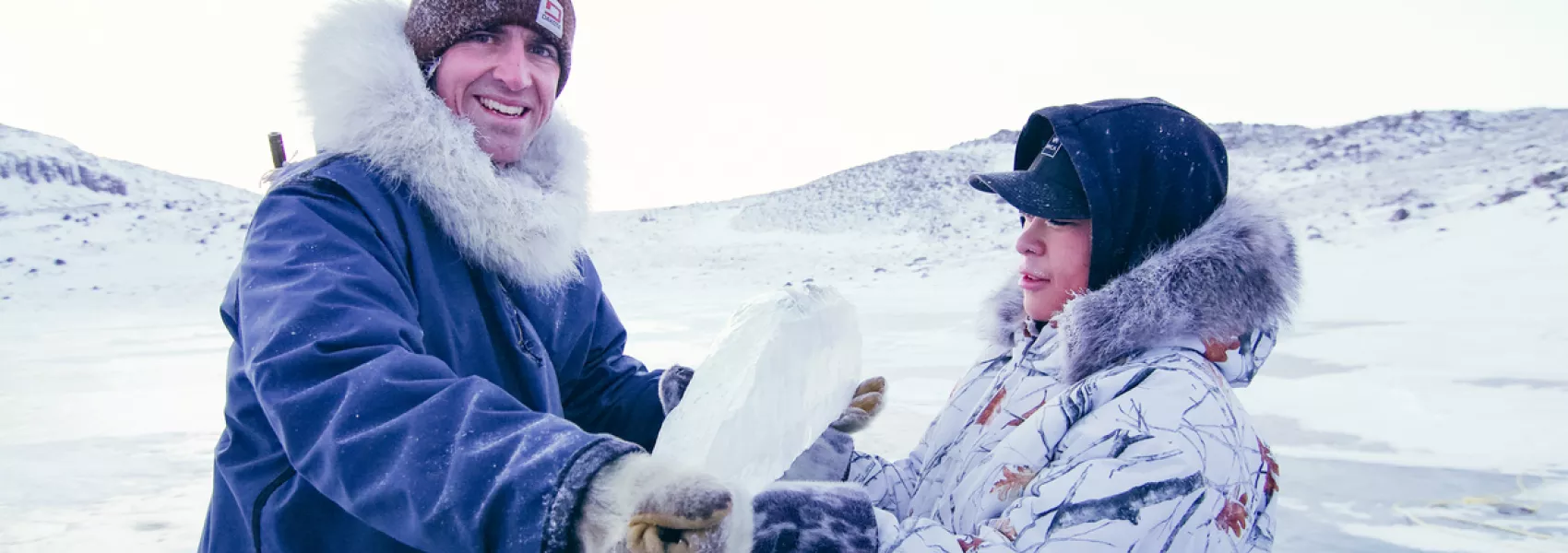
Northern Studies
Study the distinct socio-economic, cultural, political and physical environments of the circumpolar north. You will learn why this region is globally significant in terms of resource extraction, sustainability, Indigenous rights, climate change, and international cooperation.
Our four-year Northern Studies degree is one of only three offered in Canada. It is offered as a major and minor.
Our graduates can pursue a career in northern development, government, non-governmental organizations, social services, resource management, conservation and more.
120 credits, 4 Years,
Part-time available
Program Details
Northern Studies is an interdisciplinary field of particular importance to northern British Columbia and of growing relevance globally.
This program draws on northern-themed courses from geography, political science, anthropology and First Nations studies, as well as online courses in circumpolar studies offered through the University of the Arctic.
Develop your knowledge of how societies in the circumpolar north are adapting to climate and environmental change, globalization, population shifts, technology, and land-use demands.
Career Paths
- Local government administrator
- Economic development officer
- Journalist/News correspondent
- Researcher and policy analyst for federal/regional government or NGO
Why at UNBC
- Gain practical international experience with a semester study in the circumpolar north or participate in exchange programs in Scandinavia or the United States
- Work with faculty recognized internationally for their circumpolar expertise in the classroom and in the field
'En Cha Huná
UNBC’s motto, from the Dakelh (Carrier) Elders, reminds us that all people have a voice and a viewpoint. Interpreted as “respecting all forms of life,” 'En Cha Huná encapsulates the spirit of academic freedom, respect for others, and willingness to recognize different perspectives.
Subscribe for updates
Receive personalized emails about your programs of interest, scholarships, application dates and more!
Admission Requirements
High School Requirements (applicable for B.C. and Yukon)
Overall average of 65% minimum in the following:
- English Studies 12 or English First Peoples 12
- Approved Academic Grade 12 Course
- Approved Academic Grade 12 Course
- Approved Academic Grade 12 Course
- Additional Grade 12 Course (Elective or Academic)
Domestic Admission Requirements
View the full list of approved academic grade 12 courses.
More high school admission requirements (including out-of-province, International Baccalaureate and Advanced Placement)
Transfer Requirements
- Have attempted at least 15 credit hours of post-secondary transferable coursework from a recognized institution.
- Be in good academic standing at the transfer institution.
- Have a 2.0 GPA from the most recent 30 credits prior to transfer.
- For the purposes of verifying any outstanding first-year prerequisites, high school transcripts may be requested.
International Admission Requirements
International Student Requirements
- Meet UNBC's English language requirements
- Meet the international admission requirements by country or meet the admission with a General Certificate of Education (or equivalent)
- Complete the required high school course equivalencies outlined in the Domestic tab prior.
Transfer Requirements
- Have attempted at least 15 credit hours of post-secondary transferrable coursework from a recognized institution
- Be in good academic standing at the transfer institution
- Have a 2.0 GPA from the most recent 30 credits prior to transfer
- For the purposes of verifying any outstanding first-year prerequisites, high school transcripts may be requested
Tuition and Fees
Approximate Costs per Academic Year
(30 credit hours, 10 courses)
| Domestic | International | |
|---|---|---|
| Tuition* | $5,985 | $26,750 |
| Student fees* | $1,125 | $1,315 |
| Books* | $1,400 | $1,400 |
* Tuition, fees and books are subject to change and vary among programs.
Scholarships, Bursaries and Awards
View the hundreds of available scholarships, bursaries, and awards.
- 1 in 3 students receive a UNBC financial award.
- $4,000,000 in financial awards given each year.